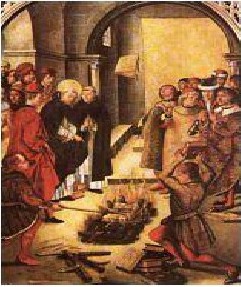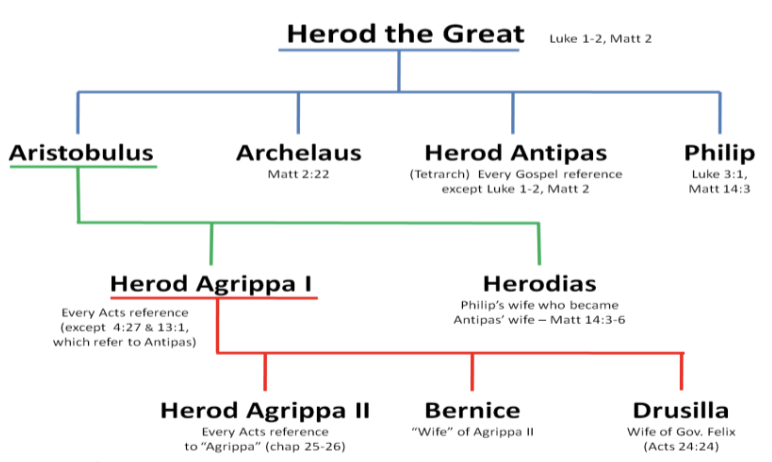
Heretic books burned by Papal decree
So are there any believers in the early days who follow the teachings of Jesus and James? Yes, the Ebionites (“the poor”) follow James, are observant of the Jewish Law and rites, stress poverty and good works, and regard Jesus of Nazareth as “a prophet, the biological son of Mary and Joseph, who by virtue of his righteousness, was chosen by God to be a messianic prophet like Moses when he was anointed with the Holy Spirit at his baptism by John.” They reject Jesus’ pre-existence, divinity, virgin birth, atoning death, and physical resurrection. They use only the gospel of Matthew starting at chapter 3, revere James the brother of Jesus (James the Just), and reject Paul the Apostle as an apostate from the Law. They place a special value on voluntary poverty. ‘Ebionim’ is also among the terms used by the sect at Qumran (possibly Essenes) that seeks to separate itself from the corruption of the Temple. The earliest reference to a group that might fit the description of the later Ebionites appears in Justin Martyr's Dialogue with Trypho (c. 140), while Irenaeus (c. 180) is probably the first to use the term "Ebionites" to describe the ‘heretical judaizing sect,’ which he regards as stubbornly clinging to the Law. (This first mention does not mean that they emerged in 180CE, but only that they then became a problem for the proto-Orthodox.)
~~~~~~~
After James’ death, a struggle ensues between the followers of James (‘faith without works is dead’) and those of Paul. The church in Jerusalem chooses Paul’s “gospel” and turns orthodox, likely because Paul’s version of salvation requires a devoted, sacramental, priestly, paternalistic hierarchy (a church), while Jesus’ and James’ version does not. Anyone who attacks the prerogatives of the Church by asserting the teachings of Jesus and James is branded a heretic, which brings us to the great contest between Pelagius and Augustine of Hippo.
~~~~~~~
 0041 Herod Agrippa (Herod the Great’s grandson, friend of the Emperor Claudius) takes over as king. A Hasmonean, he shows reverence for local customs; the people have a brief respite of good government.
0044 Agrippa dies suddenly; Governors are back; relations deteriorate; rebellion and false prophets pop up: Thelgas, the Egyptian.
~~~~~~~
0041 Herod Agrippa (Herod the Great’s grandson, friend of the Emperor Claudius) takes over as king. A Hasmonean, he shows reverence for local customs; the people have a brief respite of good government.
0044 Agrippa dies suddenly; Governors are back; relations deteriorate; rebellion and false prophets pop up: Thelgas, the Egyptian.
~~~~~~~

 0041 Herod Agrippa (Herod the Great’s grandson, friend of the Emperor Claudius) takes over as king. A Hasmonean, he shows reverence for local customs; the people have a brief respite of good government.
0044 Agrippa dies suddenly; Governors are back; relations deteriorate; rebellion and false prophets pop up: Thelgas, the Egyptian.
~~~~~~~
0041 Herod Agrippa (Herod the Great’s grandson, friend of the Emperor Claudius) takes over as king. A Hasmonean, he shows reverence for local customs; the people have a brief respite of good government.
0044 Agrippa dies suddenly; Governors are back; relations deteriorate; rebellion and false prophets pop up: Thelgas, the Egyptian.
~~~~~~~